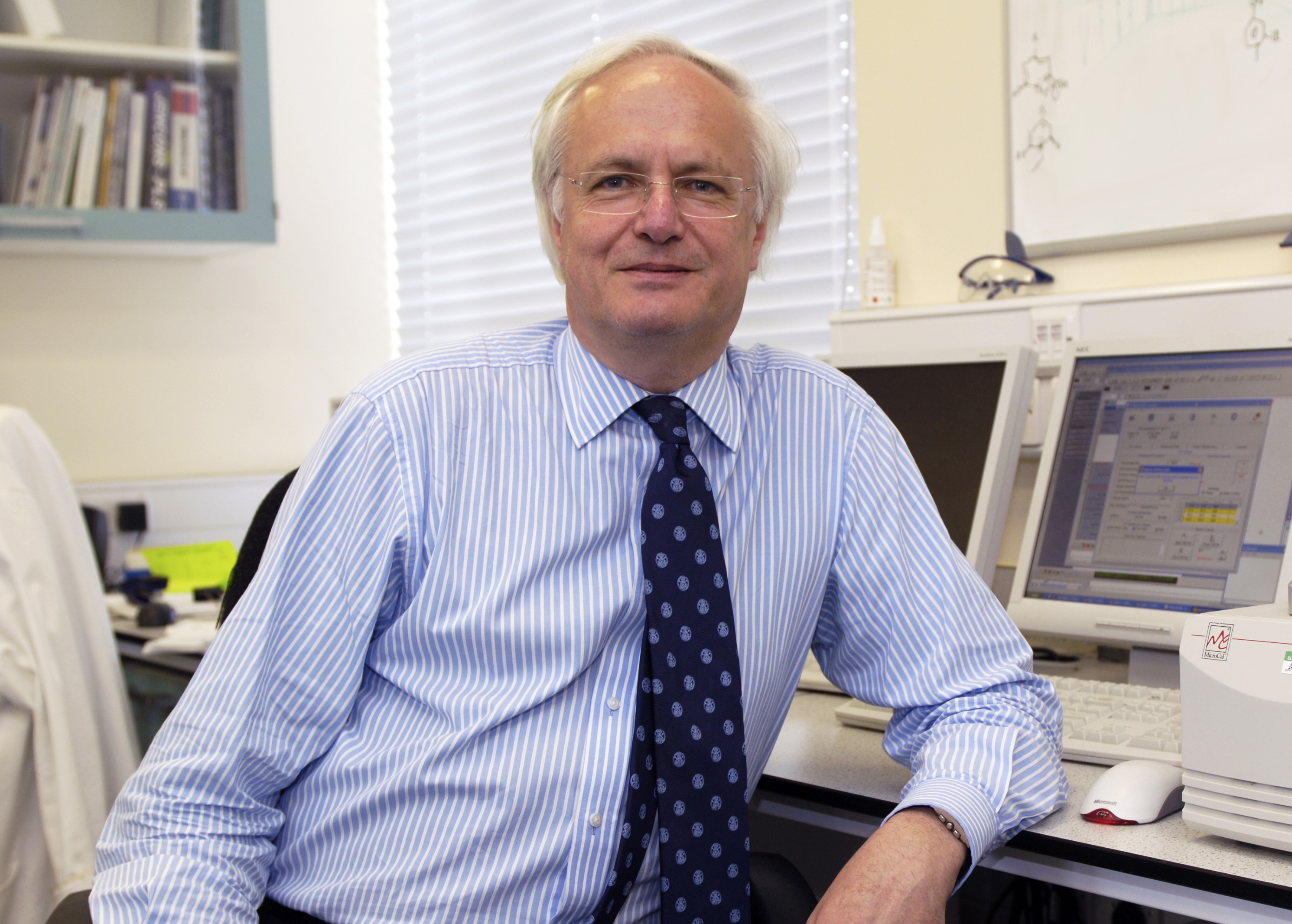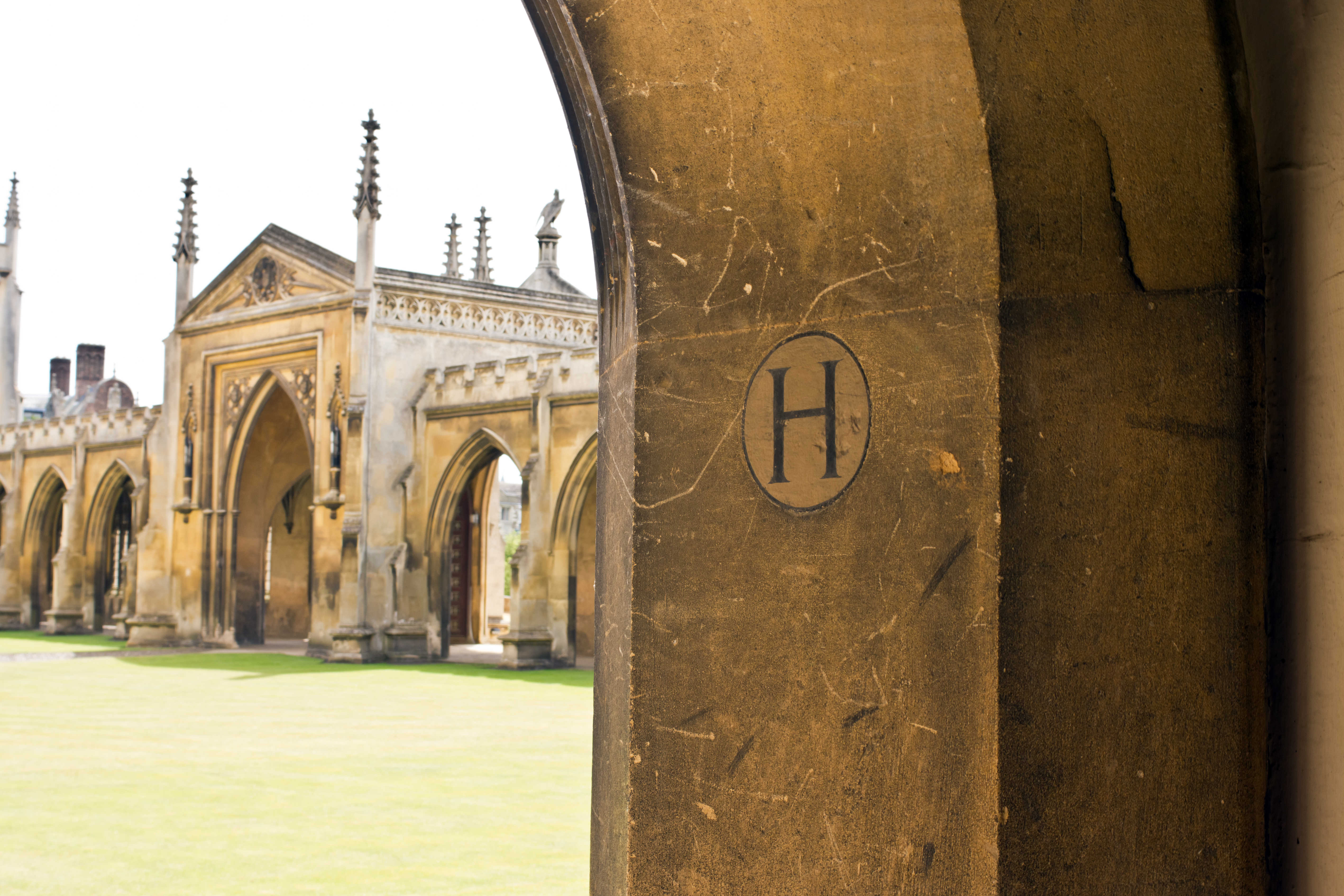Master of St John’s honoured with knighthood in recognition of his ground-breaking research into Alzheimer’s disease
"Sir Christopher has achieved remarkable breakthroughs and been a mentor to many other scientists"
Professor Christopher Dobson has been knighted in the Queen's Birthday Honours 2018 to commemorate his illustrious scientific career.
The Birthday Honours recognise the achievements of a wide range of extraordinary people from across the UK. Sir Christopher, Master of St John’s College, one of the largest and oldest of the Colleges of the University of Cambridge, was honoured for his contributions to Science and Higher Education.

Sir Christopher is one of the world’s leading scientists working at the interface of the physical and biological sciences. Amongst other high-profile scientific achievements, in 2013 he co-founded the £50 million Cambridge Centre for Misfolding Diseases (CMD).
Scientists at the Centre focus on analysing the origins of neurodegenerative conditions - such as Alzheimer’s and Parkinson’s diseases - which occur because of ‘misfolded’ protein molecules. The experimental work by Sir Christopher and his inter-disciplinary research team has led to remarkable breakthroughs in the field.
Professor Tuomas Knowles, a co-founder of CMD and a Fellow of St John’s, said: “Sir Christopher's landmark discoveries over the past 30 years have truly transformed our understanding of misfolding diseases.
“His work has had enormous influence throughout the physical, biological and medical sciences, establishing new connections, and generating wide-reaching implications for molecular medicine. It is wonderful that such an eminent scientist and influential and inspiring leader has been recognised with this honour.”
"It is wonderful that such an eminent scientist and inspiring leader has been recognised with this honour”
The honour of knighthood comes from the days of medieval chivalry, as does the method used to confer the knighthood - the touch of a sword by the sovereign.
It is conferred for an outstanding contribution in any field of activity.
He said: “I am truly humbled to receive this remarkable honour. It would not have been possible without the brilliance and dedication of my students and scientific colleagues over many years, whose commitment to improving the lives of those suffering from Alzheimer’s disease and other neurodegenerative conditions is deeply impressive.”
“It also recognises the commitment of the University of Cambridge, and the UK Higher Education sector in general, to educating to the highest possible standards the most able and deserving students on whose shoulders the future of the world depends.”

"I cannot express strongly enough how much I value the encouragement, support and friendship I receive at St John’s"
Sir Christopher was educated at the University of Oxford and became an Assistant Professor of Chemistry at Harvard University before he returned to Oxford as Professor of Chemistry. In 2001 he moved from Oxford to the University of Cambridge when he was appointed as the John Humphrey Plummer Professor of Chemical and Structural Biology and elected a Fellow of St John’s College. He became Master of St John’s College in 2007.
Sir Christopher said: “I cannot express strongly enough how much I have valued the inspiration, encouragement, support and friendship that I have received at St John’s from students, staff, Fellows and alumni, and how important the intellectual and cultural environment that exists in this truly remarkable College has been for my scientific activities.”
In 2016, three years after he co-founded the Cambridge Centre for Misfolding Diseases, he also co-founded Wren Therapeutics, a start-up biotechnology company whose mission it is to take the ideas developed at CMD and translate them into finding new drugs to treat Alzheimer’s disease. Sir Christopher paid tribute to the University of Cambridge and the Department of Chemistry for their support and encouragement.
Lord Nigel Crisp, an Honorary Fellow of St John’s and independent crossbench member of the House of Lords where he co-chairs the All-Party Parliamentary Group on Global Health, commended Sir Christopher’s “exceptional” leadership in science and education.
He said: “This award is very richly deserved. Sir Christopher is one of the country's leading scientists who has achieved remarkable breakthroughs and been a mentor and inspiration to many other scientists.
“He has brought these same qualities of intellectual rigour and humanity to St John's where he has proved to be an exceptional leader and Master.”
Professor Dame Carol Black, Principal of Newnham College, University of Cambridge, and an Expert Adviser on Health and Work to the Department of Health and Social Care, said: “Professor Sir Christopher Dobson has made an ever-increasing contribution to the understanding of how aberrant protein molecule association can lead to human diseases, particularly those of neurodegenerative origin such as Alzheimer's. His knighthood is a well-deserved recognition of his outstanding work.”
Sir Christopher also has an important message of hope to share about the diseases he has dedicated his life to combating.
He said: “Preventing and treating these disorders are huge challenges but we are confident they will be defeated just as so many diseases that have affected humanity in the past have been conquered.”
"I want to thank my wife and children for their fantastic encouragement throughout my life and career”
Sir Christopher has been credited with transforming the careers of many scientists including Professor Dame Carol Robinson, now of Oxford University, who said: “His many contributions to our understanding of protein misfolding diseases have changed our view of this important branch of science and informed potential therapies.
“Chris is also a great mentor and inspiration to his students and has transformed many careers, including my own.”
Sir Christopher paid tribute to his friends and family for their “unstinting support”.
He added: “On a personal note, I want to thank my friends, family and colleagues, and especially my wife, Mary, and children, Richard and William, for their fantastic encouragement throughout my life and career.”
Published: 08/06/18